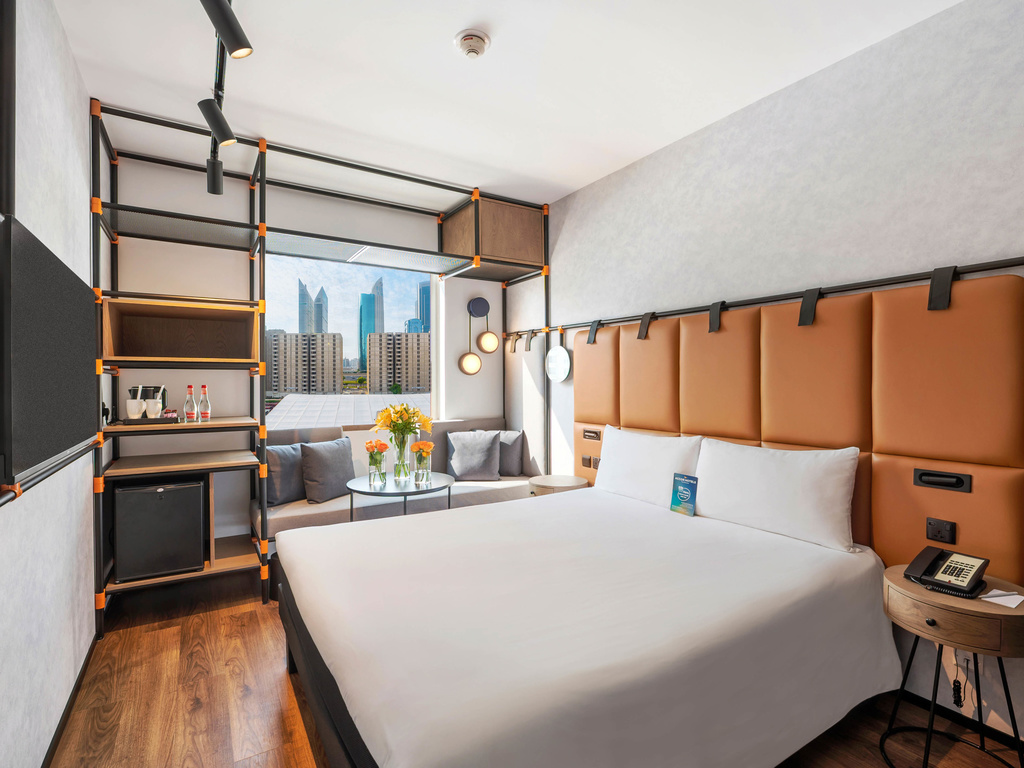Accor Wants to Push Economy Hotels in Middle East: 'Mass-Market is Not a Rude Word'

Skift Take
Accor CEO Sébastien Bazin has increasingly focused on expanding the group's luxury brands to compete at the top tier. However, the reality remains that for every luxury hotel in Accor’s network, there are 10 non-luxury properties. The group operates around 550 luxury and lifestyle hotels compared to over 5,000 in the premium, midscale, and economy segments.
These non-luxury brands—from Pullman to Ibis and Novotel—are currently experiencing promising growth in the Middle East, a region traditionally associated with luxury.
With Saudi Arabia targeting 150 million tourists by 2030, the UAE aiming for 40 million guests by 2031, and Dubai’s new airport projected to handle 230 million passengers, the region is shifting toward mass-market tourism.
Accor’s regional chief operating officer, Paul Stevens, told Skift: “Mass market is not a rude word. Many GCC [Gulf Cooperation Council] governments will grow sustainably. There will be more people, but there will be appropriate planning for that. Realistically we’re on the way there, but we’re not destroying the market on the way. It won’t be a rude word in this part of the world.”
While the Middle East’s numerous luxury tourism projects dominate headlines, it is the non-luxury segment where most travelers will choose to stay.
“The reality is that they [most people] won’t stay at those [luxury hotels], they can’t afford to,” said Stevens. “Midscale and economy have come so far from where they used to be. You need to cater to market demand; the masses are in premium, midscale, and economy.”
Growth in Saudi Arabia
The Saudi Tourism Authority reports that 80% of travelers will go to non-luxury accommodations. According to Stevens, Saudi is on the right track.
“I would say Saudi has done the right thing: You build the highlights and the pinnacles [so] everybody talks about it. They’re the shining lights on top, and that creates great PR,” Stevens explained. “That’s what new destinations need, but the truth is that 90% of the market sits within premium, midscale, and economy.”
Stevens noted that Accor will soon announce a "healthy" number of non-luxury hotels in Saudi Arabia. However, he emphasized that project announcements are carefully timed. “You have to be quite conscious of when you publicize signings. We’re very much led by our owners in Saudi Arabia. They’re coming, though; it’s healthy."
In 2023, Accor and Amsa Hospitality signed a franchise deal for 18 new hotels over 10 years. Brands include ibis Styles, Mercure, Mercure Living, Novotel, Novotel Living and Handwritten Collection. At the end of last year, Stevens signed the first Tribe hotel in the region, also in Saudi Arabia.
Novotel is a particularly popular brand in the kingdom as well. In Saudi Arabia, the group manages nine Novotel properties and is set to introduce six more by 2030, adding approximately 1,300 keys.
Adding Affordable Options to Luxury Destinations
The goal is for developers in luxury-heavy locations to incorporate affordable hotel options alongside five-star properties. On Palm Jumeirah, for instance, Accor operates an Adagio hotel on the same promenade as some of the island’s largest luxury resorts. Similarly, on Marjan Island in Ras Al Khaimah, Accor manages a Pullman and a Movenpick near upcoming luxury properties like Wynn and Nobu.
Dubai in the coming years is expected to develop two dormant man-made islands for tourism: Dubai Islands and Palm Jebel Ali. Palm Jebel Ali was revived in 2023 and hopes for 80 hotels upon completion. Dubai Islands was resurrected in 2022, and also plans 80 hotels.
Stevens sees these two islands as big opportunities. "We’ve been watching those new projects in Dubai. They’re big landbanks in attractive places. It’s a great opportunity. Deira Island [now known as Dubai Island] most definitely. That’s more of a midscale location. Jebel Ali, I know developers want five-stars, but the reality is that between those luxury hotels, you need midmarket."
"There is room for everybody," Stevens said.
Accommodations Sector Stock Index Performance Year-to-Date
What am I looking at? The performance of hotels and short-term rental sector stocks within the ST200. The index includes companies publicly traded across global markets, including international and regional hotel brands, hotel REITs, hotel management companies, alternative accommodations, and timeshares.
The Skift Travel 200 (ST200) combines the financial performance of nearly 200 travel companies worth more than a trillion dollars into a single number. See more hotels and short-term rental financial sector performance.





